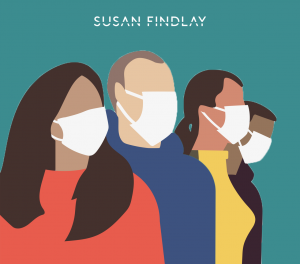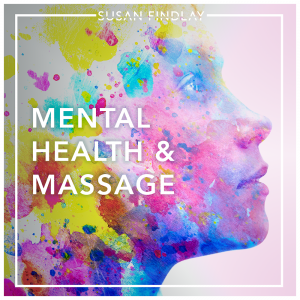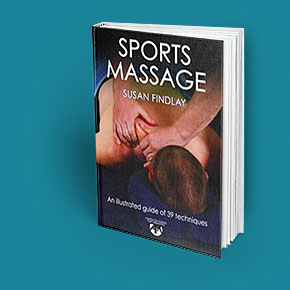I think that it would be safe to say that 2020 has been a curveball, or rather a series of curveballs, for everyone. At the start of the year I was looking forward to business as usual; seeing my clients, continuing to develop professionally, and delivering training courses. However, Covid-19 and the ensuing lockdowns have meant that I have had to drastically change the way that I deliver my services in order to continue my practice. The good news is, for myself and the rest of the massage industry we do not have to go extinct; we only have to evolve.
I am sure, like me, you are becoming Covid worn but it would be remiss of me to start an article on this subject matter without mentioning the importance of being constantly up-to-date on the ever-changing Covid-19 regulations and government advice. As a massage therapist, my client’s wellness is the most important thing to me. I cannot possibly consider myself a wellness practitioner if I am cutting corners and putting clients at risk, even if it may mean that I am limiting the number of clients I see. Currently, this may include wearing avisor, a face-covering, and asking them to complete a form prior to their arrival. At the time of writing it isn’t clear if we have to wear gloves, although I always check with my clients whether they would prefer me to. I have always taught those working within oncology that gloves are sometimes a requirement. I try to minimize risk but, massage should relax people mentally as well as physically, and I will do anything I can do to put my clients at ease during my sessions.
 Ultimately though, the way in which we see clients has impacted on the number of clients we can see. In between sessions I now have to disinfect everything in the room, change my clothes, disinfect myself, and fill in paperwork. This is not just me who is affected by this; it is the entire industry. So, how can we evolve to make sure that we can continue to flourish, even during these testing times?
Ultimately though, the way in which we see clients has impacted on the number of clients we can see. In between sessions I now have to disinfect everything in the room, change my clothes, disinfect myself, and fill in paperwork. This is not just me who is affected by this; it is the entire industry. So, how can we evolve to make sure that we can continue to flourish, even during these testing times?
The answer, in my opinion, lies in specialising. There are thousands upon thousands of massage therapists in the UK who do not specialise in a specific area. However, there are also thousands of potential clients seeking expert treatment for the myriad conditions which massage has been shown to help. For my fellow massage practitioners, this means that by failing to specialise, you are missing out on clients and their money. I don’t like to mention money in my articles, as like I previously said, my main concern is improving the lives of my clients. However, massage is still a business with certain overheads (some of which have gone up since Covid-19), and we all need to keep a roof over our heads!
If I tried to write down all the potential areas massage practitioners could specialise in I would be here for a very long time, and you would probably get very bored by the time you got to the end of the list. Some of the most sought after specialities are Neuromuscular, Scar Work, Myofascial Release, and Oncology. I have chosen to specialise in the latter after seeing the amazing benefits that it can bring to cancer patients and those who are in the process of recovering from it.
I do not celebrate the fact that I constantly have new clients as a result of this, as it would be akin to celebrating cancer diagnoses. However, what I can celebrate is the fact that I am uniquely positioned within my field to provide the maximum relief from the symptoms of cancer and its treatment, which can be equally debilitating for its sufferers. One of the most common physical complaints, is pain. Conventional methods of relieving pain usually include strong, opiate-based painkillers, which only actually mask the feeling rather than treating the source, and come with a wide range of negative side effects such as drowsiness and digestive problems.
Studies have shown that massage can reduce pain in cancer sufferers significantly, without these side effects (1).
 Massage has also shown to be beneficial to a wide range mental health conditions including depression and anxiety (2). Whilst cancer does not discriminate and can affect people who previously suffered from these conditions, a cancer diagnosis can be a very traumatic event and can precipitate these (3), and other, mental health conditions (4). In my work it is a true pleasure to help people who are suffering from symptoms of these conditions, whether it is related to cancer or not.
Massage has also shown to be beneficial to a wide range mental health conditions including depression and anxiety (2). Whilst cancer does not discriminate and can affect people who previously suffered from these conditions, a cancer diagnosis can be a very traumatic event and can precipitate these (3), and other, mental health conditions (4). In my work it is a true pleasure to help people who are suffering from symptoms of these conditions, whether it is related to cancer or not.
The fact that I specialise also opens up another revenue stream for me away from the massage table (sort of!). It means that my services are sought after from other aspiring Oncology massage therapists which has meant that I have been able to deliver training courses all over the country, been able to spread word of the efficacy of Oncology massage, and had the opportunity to meet many amazing people (hello again!). The ultimate result of this is that more people are receiving relief from their symptoms, whilst my colleagues get a steady supply of new clients. Specialising in the new Covid-19-affected world really is a win-win for everyone.
References
1. Kutner, Jean S. et al. “Massage Therapy Versus Simple Touch To Improve Pain And Mood In Patients With Advanced Cancer”. Annals Of Internal Medicine, vol 149, no. 6, 2008, p. 369. American College Of Physicians, doi:10.7326/0003-4819-149-6-200809160-00003. Accessed 12 Oct 2020.
2. Rich, G.J. “Massage Therapy For PTSD, Trauma, And Anxiety”. RUDN Journal Of Psychology And Pedagogics, no. 3, 2013, pp. 60-66. Peoples’ Friendship University Of Russia, doi:10.22363/2313-1683-2013-3-60-66. Accessed 25 Aug 2020.
3. Spiegel, David. “Cancer And Depression”. British Journal Of Psychiatry, vol 168, no. S30, 1996, pp. 109-116. Royal College Of Psychiatrists, doi:10.1192/s0007125000298486. Accessed 12 Oct 2020.
4. Stark, D., House, A. Anxiety in cancer patients. Br J Cancer 83, 1261–1267 (2000). https://doi.org/10.1054/bjoc.2000.140

